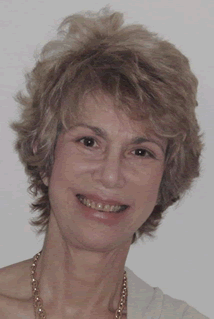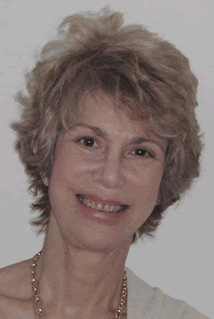Health Care for All
- SUBSCRIBE
- ALREADY SUBSCRIBED?
BECOME A BONJOUR PARIS MEMBER
Gain full access to our collection of over 5,000 articles and bring the City of Light into your life. Just 60 USD per year.
Find out why you should become a member here.
Sign in
Fill in your credentials below.
 One of President Barack Obama’s goals is to make health insurance affordable and accessible to all Americans by utilizing the current healthcare system. This would include using existing providers and insurance plans.
One of President Barack Obama’s goals is to make health insurance affordable and accessible to all Americans by utilizing the current healthcare system. This would include using existing providers and insurance plans.
As an American, this would be a dream. Not everyone can afford the wildly expensive health insurance policies, many of which have so many deductibles that people may find their insurance isn’t worth much except in the event of a catastrophic illness.
Some states in the U.S. forbid insurers to decline patients because of pre-existing conditions. In other states, it’s the insurer who makes the call and can do as they like and do.
In addition, monthly premiums might run as much as your housing costs. It’s not a pretty picture and, as a result, too many Americans go without medical insurance.
Being a French resident has increased my awareness (as well as the funds in my bank account) that medicine in France is a whole lot cheaper than in the U.S. A consultation with an internist costs 22 euros. And French healthcare is exceptional.
Because of government controls, prescription medications cost a fraction of what they do in the States. I was just able to buy a six-month supply of a pill I take for the cost of one month’s supply of the same pill purchased in the U.S. My cost for a month’s worth of pills was two dollars less than my co-pay.
Having said that, if you need an aspirin in France, its much more expensive than in the US. Expatriates, once back in America, stock up on enormous bottles of vitamins, aspirin and other over-the-counter drugs. There’s current legislation pending that will enable French residents to buy non-prescription drugs for a reasonable price at certain grocery stores and parapharmacies.
Being an expat of a certain age, I don’t understand why Medicare doesn’t cover people who don’t live in the U.S. Some of us view it as discrimination and can’t believe it’s so difficult to do the mathematic calculations between what a procedure costs in Nebraska and what it would cost overseas. In spite of ongoing lobbying, American citizens who choose to live outside of the U.S. are under the financial gun. We’re hoping this will change sooner rather than later.
As things stand now, the same doctor’s visit and other medically related procedures cost very little in the E.U. (and even less in countries that are developing medical tourism, such as Singapore and India).
A few U.S. insurance companies are sending patients overseas for complicated surgical procedures to save on costs. Dr. Sanjay Gupta recently did an in-depth report on CNN, explaining this may become increasingly prevalent. The hospital he toured in India was nothing less than state of the art and many of the physicians had been trained in the U.S.
The differential cost in medical care personally struck home recently when I had a houseguest from the U.S. His vacation was spent in misery, since he developed numerous symptoms from some mysterious illness. Don’t get the wrong idea – I usually don’t aim to kill people who stay with me. But on his second day in Paris, he awakened with the rash from hell. His body was covered with hives and it wasn’t a pretty sight, not to mention he was in excruciating pain from the itching.
Off I went to my local pharmacy to explain the situation, and returned with a box of antihistamines and some body lotion. The pharmacist couldn’t have been nicer or more accommodating. Contrasted with the U.S., there’s a drug store on nearly every Paris block and they sell almost nothing but medications. In France, you may be able to buy a toothbrush in a pharmacy, but forget milk and other sundries—la pharmacie is not CVS.
When my guest wasn’t better the next day and had developed additional symptoms, we headed to the pharmacy (which can’t be more than 500 square-feet in size). Two of the pharmacists held a conference and decided he should go to the doctor.
One phoned a near-by one and made an appointment for him to be seen immediately. We were told to rush to the office since it was a Saturday and the office was only open until noon. So we wouldn’t lose time getting lost, one of the pharmacists drew a map to show us the most direct route.
My guest, now the patient, was seen within minutes of arriving in the doctor’s office. None of this “sit and wait business” I’ve become accustomed to in the U.S., in spite of having a walk-in appointment.
If someone becomes sick in France and can’t make it to the doctor, he or she can call SOS Médecins — a network of 1000 doctors who make house calls 24 hours a day. When you speak with the dispatcher, explain you’d prefer a doctor who speaks English and describe your symptoms. The price varies depending on the hour you call. But the group guarantees a physician will be there within an hour. And it’s usually sooner. They can come to your house and even give shots at your home.
Many people say that all of the perks of the French medical system can’t last, as the French social security system (sécurité sociale) is under severe financial strain due to an aging population, which has contributed to a huge increase in spending on healthcare, pensions and unemployment benefits in recent years. As of February 2009, France’s health spending alone is around 10 percent of its GDP. Then again, America’s is over 14 percent—and I’m not always sure we get the best care for the high prices.
You can’t help but wonder if there will ever be parity when it comes to medical care and goods and services. For right now, I have US insurance, and I also tap into the French healthcare system when needed. Fortunately for me, I have the best of both worlds.
Come Twitter with me: https://twitter.com/kvfawcett
© Paris New Media, LLC
[email protected]




